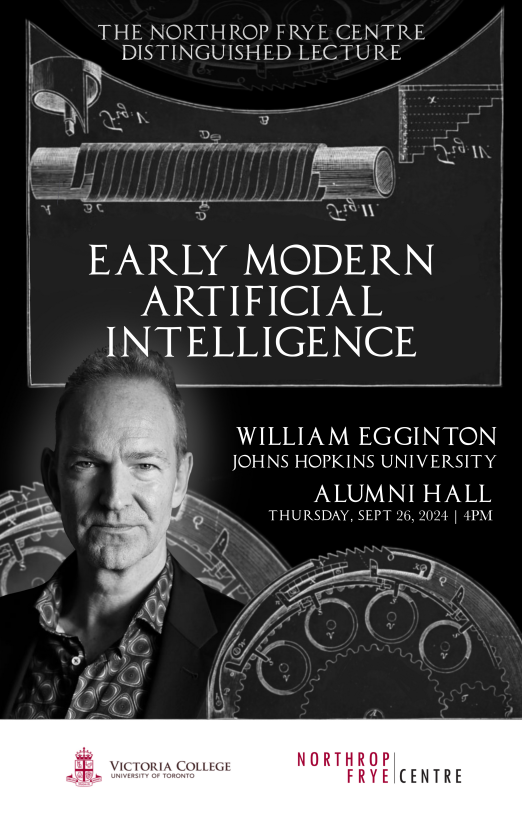Bill Egginton | Early Modern Artificial Intelligence
NFC Distinguished Lecture
Join us for the NFC Distinguished Lecture given by Bill Egginton, Decker Professor of Humanities at Johns Hopkins University.
Location: Alumni Hall

About the talk...
As the world grapples with the promises and threats of AI, at the extreme ends of both wish-fulfillment and nightmare stands a common premise: the machine that not only follows instructions, but also chooses, invents, designs and controls.
For some commentators, of course, we have already crossed that threshold. For others, we never will. While such disputes may entail different interpretations of today’s technological capacities, they are far more influenced by a lack of consensus concerning what we mean when we talk about human intelligence. And this is a debate that spans millennia.
While a thorough archeology of concepts like mind, spirit, soul—what is implicitly conjured by the promise or specter of thinking machines—would start at least with the ancient Greeks, early modern Europe provides us with a key moment and some vital protagonists in the story. In this lecture, William Egginton delves into a cross-cultural, transmedia conversation—involving thinkers and writers such as Llull, Cervantes, Descartes, Leibniz and Kant—to unearth some of the basic problems and unspoken assumptions of today’s AI catastrophists and apologists alike.
About the speaker...
William Egginton is the Decker Professor in the Humanities, chair of the Department of Modern Languages and Literatures, and Director of the Alexander Grass Humanities Institute at Johns Hopkins University. He is the author of multiple books, including How the World Became a Stage (2003), Perversity and Ethics (2006), A Wrinkle in History (2007), The Philosopher’s Desire (2007), The Theater of Truth (2010), In Defense of Religious Moderation (2011), The Man Who Invented Fiction (2016), The Splintering of the American Mind (2018) and The Rigor of Angels (2023), which was named to several best of 2023 lists, including The New York Times and The New Yorker. He is co-author with David Castillo of Medialogies: Reading Reality in the Age of Inflationary Media (2017) and What Would Cervantes Do? Navigating Post-Truth with Spanish Baroque Literature (2022). His latest book, on the philosophical, psychoanalytic and surrealist dimensions of the work of Chilean director Alejandro Jodorowsky, was published in January 2024.
